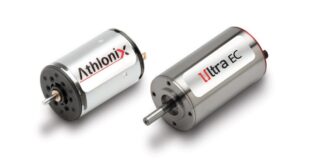Are you making these five CV mistakes? asks Lee Biggins, founder and managing director of CV-Library
Recruiters can be hard people to impress. They spend a great deal of time sifting through CVs, so it’s essential that you know how to sell yourself to them.
This is particularly true in the engineering industry, where employers will be hunting for the most creative, innovative and talented individuals.
Yet, a recent survey from CV-Library found that over a third (38.5%) of engineers don’t know how to write a stand-out CV that would boost their chances of securing an interview. This means that many talented engineers could be losing out on great opportunities because they don’t know how to write a strong CV.
We’re here to help you perfect your CV. Below we outline the common mistakes that you could be making – and how to avoid them!
1. Submitting a CV that’s too long
As a rule, your CV should never exceed two A4 pages. After all, you want to avoid waffling, so everything you have to say should be able to fit.
If your CV is verging on three or even four pages, it’s time to think about how you can make it more concise.
Cut out any irrelevant information or long employment histories.
When you’re editing your CV, think about the important information that recruiters want to know. They are busy people who could become uninterested reading unnecessary text.
Remember, your CV doesn’t have to include everything, just the essentials. It’s okay to be picky, even if this means cutting out parts such as the hobbies and interests section.
You can also leave out your references by simply adding ‘references upon request’ at the end.
2. Not tailoring your CV
What’s more, a quarter (23.1%) of engineers don’t know how to tailor their CV or make it relevant to different job roles.
When it comes to CVs, one size doesn’t fit all, so yours shouldn’t look generic or like a template plucked straight from the internet.
Your CV not only needs to be job role specific, but also company specific. Plus it has to be tailored towards the engineering industry.
To do this, you need to include the skills that engineering employers are looking for, such as creativity, innovation, excellent communication skills and time management.
Refer to the job description for this. As part of the personal specification it will list the type of skills the company is looking for.
Incorporate these skills into your work experience and qualifications sections using action verbs such as ‘managed’, ‘provided’, ‘reviewed’, ‘monitored’ and ‘conducted’.
A top tip is to do some careful research beforehand, making sure you’re reviewing the company’s website, social media feeds and industry news to help tailor your CV.
3. Lying about your abilities
Lying is a big no-no when it comes to your CV and applying for jobs. You could get into serious trouble and it’s definitely not worth it.
Recruiters see hundreds of applications and are good at spotting anything that isn’t quite right. You might find yourself in a tricky situation during the interview if you’ve lied about your knowledge and/or experience.
Alongside this, it’s best not to exaggerate any of your skills or qualifications, because if you do land the job, you might struggle to meet their expectations. Or even worse, if you get caught out it could cost you the job!
4. Poor presentation
You may think it’s creative to use unusual fonts or different colours on your CV, but this can look unprofessional and can be distracting.
Stick to a professional structure, and use fonts such as Calibri or Ariel in black. What’s more, make sure it is laid out clearly so your work history, skills and education are very clear – you can use bullet points to help with this.
5. Spelling or grammar errors
Your spelling and grammar need to be perfect on your CV, there’s no room for mistakes. It could damage your chances of landing the job, even if you have just one typo or error.
So don’t assume that recruiters won’t notice or care about a small mistake. Look out for company names that won’t get picked up by your spell checker as getting this wrong is a major red flag.
These indicate that you don’t pay much attention to detail and could suggest that you were too lazy to check your application properly before submitting.
Make sure you proofread your CV thoroughly and ask someone else to look over it for you.
Your CV is a crucial part of your job application, so it’s in your best interest to take the time to get it right. Make sure you’re not making these common mistakes and follow our handy tips above to help you craft a great CV.
Lee Biggins is founder and managing director of CV-Library.
 Engineer News Network The ultimate online news and information resource for today’s engineer
Engineer News Network The ultimate online news and information resource for today’s engineer


